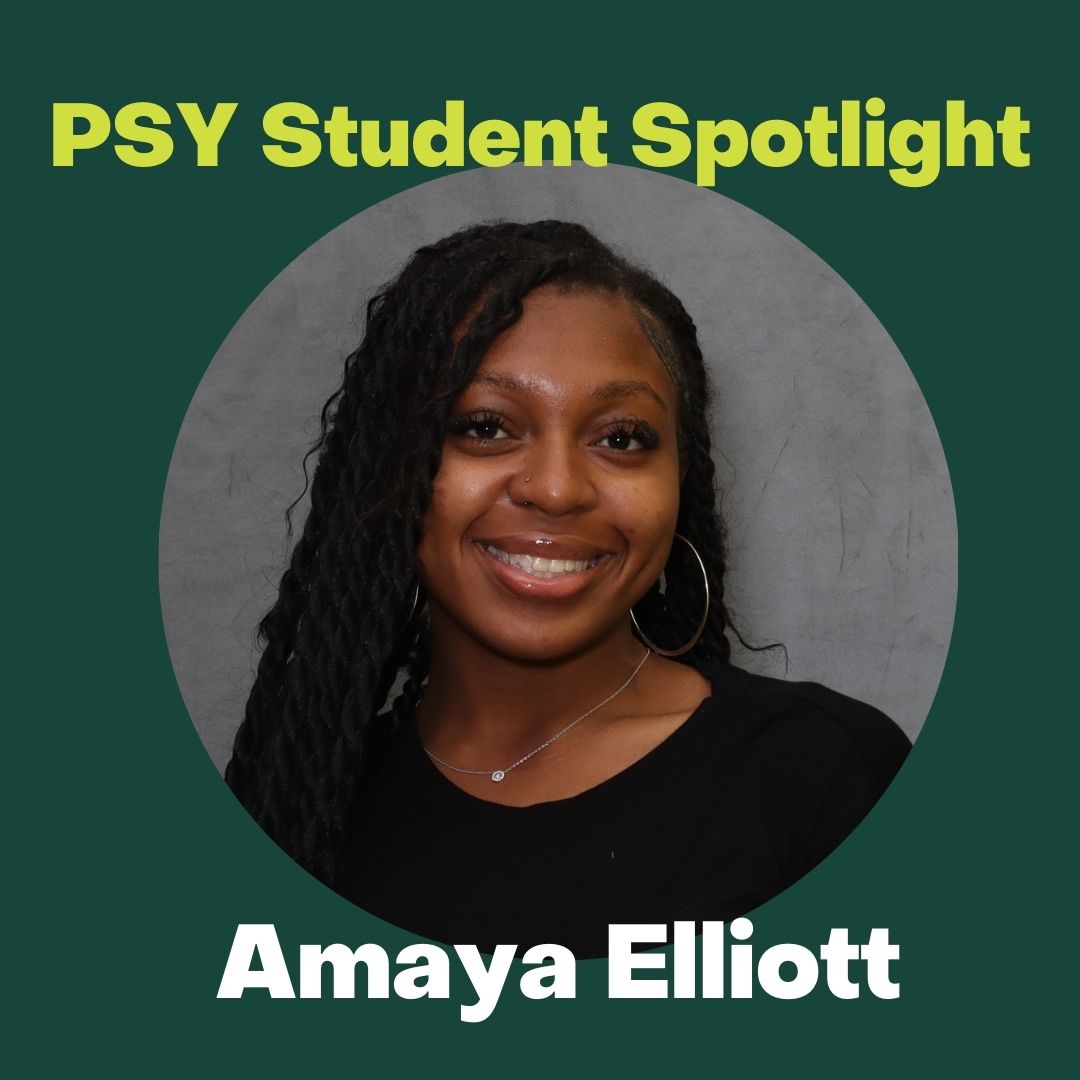Black Girls in Social Science Spotlight with Amaya Elliott
October 17, 2023 - Shelly DeJong

Amaya Elliot is a third-year student from Detroit majoring in Psychology with a minor in Human Behavior and Social Services. This year, she has joined the e-board of a new student group, Black Girls in Social Science. Amaya recently sat down with us to talk about her passion for Social Science and her hopes for the impact that this group can have.
Can you tell us what drew you to psychology?
In high school, I had a passion for helping people. By talking with my friends about their problems, I realized that this is something that I actually want to do professionally. I wanted to learn more about how the brain works and why people act in different ways.
Black Girls in Social Science is a new student group this year. How and why did you decide to get involved?
I noticed the group followed me on Instagram, so I started looking into it. I immediately was interested because I had been wanting to join an organization directed either in psychology or social science, but I couldn't find any on campus that interested me. But when I found Black Girls in Social Science it was something that I really wanted to join.
Being in a community with people who look like me, who share the same interests as me, who share the same career goals was really appealing to me. We’re all in Social Science, so it's something we all have a passion for.
As a psychology major, what does it mean to you to be a part of a group like this?
Historically, psychology hasn’t been the most diverse field. Even in some of my psychology classes, there aren’t always a lot of people who look like me. That's one of the reasons why I chose psychology because I would like people in African American communities to realize that there's people out there that look like us that can help. A lot of people are hesitant to reach out for help because they may think that a therapist or counselor isn’t going to understand what they’ve been experiencing. I want to add more diversity to the field and encourage people in my community to reach out for help.
What are your goals for Black Girls in Social Science for this year?
So far, we have been meetings as executive board members to plan for the upcoming year. We want to have study tables where we get together to study. Some of us may have the same classes because we're all Social Science, so we can help each other out. We also want different guest speakers to come in and hold workshops to enhance our careers like resume building. Our first general body meeting will happen later this month, which we’re all excited for.
What do you hope that this group can bring to MSU?
I think that this group can encourage more people to join the Social Sciences. To have a place to explore what it's all about, because it’s a very broad field. Our e-board is made up of all different types of majors from Criminal Justice to Social Work to Psychology majors. I hope that this group can show people how many options they have for their future careers.
Hopefully, Black Girls in Social Science can help new students discover what they really want to do instead of waiting to their third of fourth years to realize what options they have and what is a good fit for them. And hopefully it can provide a place of community and support.
Have you had any psych professors that have had an impact on you?
Definitely Dr. Kandy Patrick, she was my Developmental Psychology professor. I really enjoyed her class--it was one of the best psychology classes I've taken so far. The material was interesting, and she was very considerate. I was excited to go to that class every time and I was always interested and engaged with the course material. Dr. Kandy had a big impact on me. She was great.
Do you have any advice for new students?
Explore your options. Explore what you like. This is the time especially as a freshman to come in and realize what you really want to do while you're in college.
And if you’re a Black girl thinking about majoring in psychology, we need more people in this field that look like us. The more that we see Black therapists or Black counselors, the more people in our communities will be encouraged to receive help. Don’t let diversity stop you. If this is something that you truly want to do, then always advocate for you and your community.

